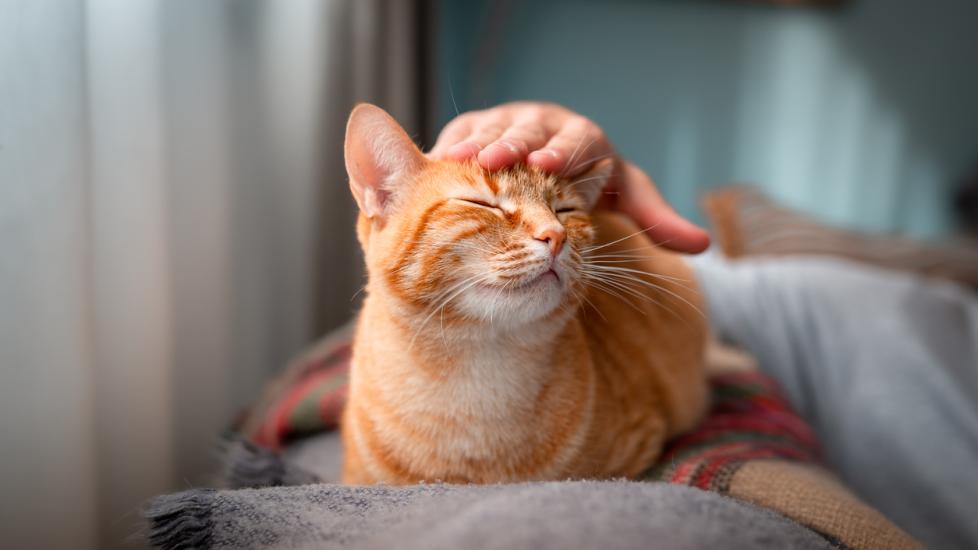How To Find the Best Joint Supplements for Cats
As pet parents, we want to do all we can to help our cats live long and healthy lives. There are several safe and helpful supplements that can be used to keep cats at their best, even as they age and begin to show signs of discomfort. Always check with your veterinarian before introducing any new supplement to your cat’s health plan.
Why Do Cats Need Joint Supplements?
Supplements can be beneficial in preventive care, maintenance care, and as part of a therapy regimen. Goals of joint supplements for cats include:
-
Maintaining joint health
-
Reducing pain and inflammation
-
Repairing cartilage
Many supplements are made from natural materials. Cats already produce some of these materials in their body, but they derive additional benefit from an increased amount.
A cat’s normal daily activities—like jumping, chasing, and rough play—can cause inflammation in their body, as can excess weight. Cats may suffer from other inflammatory conditions, including osteoarthritis, immune-mediated diseases (resulting from abnormal activity of the immune cells, overreacting or attacking to the body), trauma, cancer, and post-surgical inflammation and pain.
What Are the Best Joint Supplements for Cats?
The following joint supplements are highly recommended for cats. Always work with your veterinarian to determine the best supplements based on your cat’s needs:
How Do I Select the Right Joint Supplements for My Cat?
When shopping for the best joint supplements for cats, be sure to look for the following ingredients:
-
Glucosamine: Provides protection for chondrocyte cells, is a cartilage component and provides support, acts as building blocks to repair damaged cartilage
-
Chondroitin: Provides chondroprotection, is a cartilage component and support, acts as building blocks to repair damaged cartilage
-
Omega-3 fatty acids: Dietary fats with anti-inflammatory properties, typically found as useable for cats in specific fish oils
-
Green-lipped mussels: Inhibits inflammation-producing chemicals in the body and provides mild pain relief
-
MSM (methylsulfonylmethane): A source of sulfur (which provides nutritional building blocks for cartilage repair) with anti-inflammatory and possible antioxidant properties
Be sure to discuss any supplements you are considering with your vet before you start them. Some ingredients can react with other medications, and some may not be suitable for your cat’s particular situation.
Additional Tips on Joint Supplements for Cats
-
Often, combining products from different classes of ingredients can have a powerful effect. (For example, using both glucosamine and omega-3 fatty acid supplements together may have a greater effect than just one of these alone.)
-
Look for product reviews, manufacturer certification, and manufacturer reputation in each class of supplements. You can also check for the National Animal Supplement Council (NASC) seal.
-
Remember that many supplements take several weeks to achieve an appropriate level in your cat’s system.
-
Many supplements provide mild to moderate pain control and may need to be paired with a prescription medication.
-
Dietary supplements are regulated by the FDA as food, not drugs. This involves assessing safety, not efficacy or quality control.
Does My Cat Need Joint Supplements?
Because supplements have minimal side effects, they can be beneficial as:
-
Preventive care for cats that are very active, large-breed cats, or aging cats
-
Maintenance care for cats that had a previous injury, surgery, or trauma
-
Part of a therapy regimen for cats with osteoarthritis, autoimmune disease, or another chronic condition
Several goals of joint supplements for cats are maintaining joint health, reducing pain and inflammation, and repairing cartilage.
Symptoms that may indicate your cat could benefit from supplements include:
-
Signs of stiffness or slowing down
-
Decrease in activity or playfulness
-
Hesitance to jump
-
Visible swelling of joints or muscle atrophy
-
Struggles with being overweight
-
Lack of grooming or overgrooming of certain areas
-
Hesitance to roll on their back, climb stairs, or use the litter box
-
Irritability or aggression
-
Reduced mobility or loss of muscle strength
-
Excessive sleep
Adding a joint supplement to your cat’s health plan is a great way to be proactive and help an aging pet live a pain-free, comfortable life. Chat with your veterinarian about supplements that make sense based on your cat’s individual needs.
Featured Image: iStock/Magui-rfajardo
References
- Brooks, Wendy. Veterinary Partner. Veterinary Partner. Medications for Degenerative Arthritis in Dogs and Cats. December 2021.
- U.S. Food and Drug Administration. FDA 101: Dietary Supplements. June 2022.
- Lundgren, Becky. Veterinary Partner. Arthritis in Dogs and Cats: What Can Be Done? January 2019.
